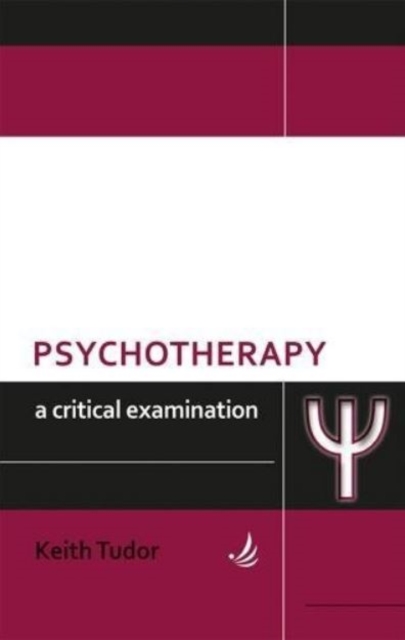
Psychotherapy: A critical examination Paperback / softback
by Keith Tudor
Part of the Critical Examinations Series series
Paperback / softback
Description
In this, the latest addition to the PCCS Books Critical Examination series, internationally acknowledged academic and psychotherapist, teacher and supervisor Keith Tudor focuses his spotlight on psychotherapy.
The aim of the series is to subject the varied psy professions to rigorous critique by leading proponents in their fields.
As Professor Ian Parker writes in the foreword: `Each theory is only as strong as its capacity to withstand sustained critical examination of the assumptions it makes about the world.' Written in an accessible, conversational style, and drawing on a myriad of philosophies and practices, the book can be read and enjoyed by practitioners, academics and educators at every level, including students and those contemplating psychotherapy as a career progression. It aims to represent pluralism, diversity and internationalism and to encourage continued critical reflection on psychotherapy as a practice, discipline and profession.
Its content is:* philosophical, in that it deals with fundamental issues of being human, and the nature of things such as relationships and how people change. * historical with regard to some of the traditions, concepts, and discussions in psychotherapy * political, in that it addresses isues of power and social justice* reflexive, in that it encourages a critical consciousness and advocates this in terms of practice* practical, on the basis that, as Marx put it: `The philosophers have only interpreted the world... the point is to change it', and* developmental, in that it takes the reader on a fascinating journey through becoming, being and belonging as a psychotherapist.
Chapter 1 concerns the nature of being critical. Chapter 2 questions the nature of psychotherapy and its scope and purpose. Chapter 3 critiques the different elements of practice - qualities, attitudes, conditions, skills and competence.
Chapter 4 examines psychotherapy theory in the context of four intellectual traditions - the Enlightenment, Romanticism, modernism and postmodernism.
Chapter 5 reflects critically on two elements that support critical practice - personal therapy and supervision.
Chapter 6 examines the knowledge that underpins research, both the methodology and the practice.
Chapter 7 considers education and training in psychotherapy.
Chapter 8 concludes with some critical reflections on psychotherapy as a discipline, as a profession, and as offering social criticism.
Information
-
Only a few left - usually despatched within 24 hours
- Format:Paperback / softback
- Pages:260 pages
- Publisher:PCCS Books
- Publication Date:30/01/2018
- Category:
- ISBN:9781906254612
£19.99
£17.99
Information
-
Only a few left - usually despatched within 24 hours
- Format:Paperback / softback
- Pages:260 pages
- Publisher:PCCS Books
- Publication Date:30/01/2018
- Category:
- ISBN:9781906254612






